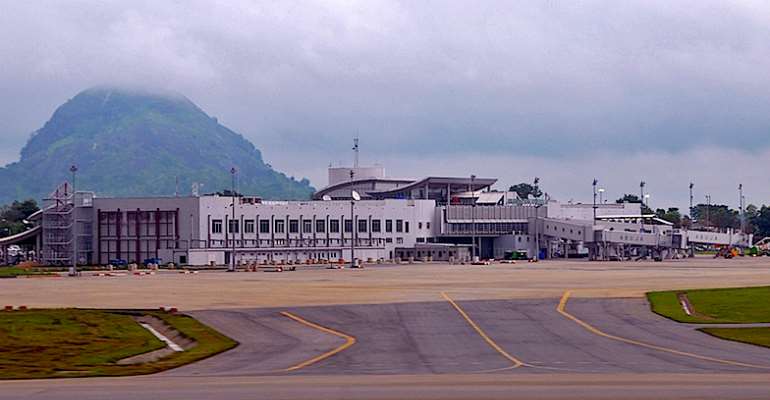Stakeholders, N72bn Abuja Airport Second Runway Raises Concerns

Stakeholders in the aviation sector are raising concerns on the construction of a N72 billion second runway at the Nnamdi Azikiwe International Airport, Abuja amid financial strains experienced in the country.
They argue that Abuja airport can function maximally without a second runway as passenger traffic originating from the airport and the number of aircraft landing and taking off from the airport are not big enough to require a second runway.
They said the funds should have been channelled to other pressing issues in the sector or other sectors needing urgent injection of funds.
For some other stakeholders, a second runway is needed for security reasons and to avert accidents and incidents in cases of ‘urgency to land,’ a situation requiring airlines to land in a bid to avert an accident.
Hadi Sirika said last week that the N72 billion Abuja second runway would be delivered in six months.
Nnolim Nnaji, chairman of the House of Representatives Committee on Aviation, said the cost covers lighting, infrastructure, buildings and the construction of the 4.2 kilometres of runway.
He said the runway would be the longest in West Africa if completed.
“I have never been in support of two runways for any of our airports, except Kano airport, where the Nigerian Air Force has a joint operation for tactical training. There was no reason for two runways in Lagos if one of the runways could be unserviceable or unused for 13 years,” John Ojikutu, a member of Aviation Round Table and chief executive of Centurion Securities, said.
“The plan for the Abuja airport is a waste because like I have said several times and in my book ‘Troubled Skylines’, our 26 federal, states and private airports put together do not have the air passengers traffic figures of Johannesburg.”
Ojikutu said neither Lagos nor Abuja airport has the traffic of Gatwick Airport and yet none of the other airports mentioned have two runways.
He, however, said what is necessary would be to extend the lengths of the runways and strengthen the load classification numbers of their thresholds where landings and damages occur.
He said when this happens, the threshold would be shifted but the take-off and the landing will not be compromised.
Ojikutu said: “The danger in a second runway for Abuja has been identified by a committee in early 20s as one that will compromise safety. The committee recommended then that if the present airport cannot be moved, the second runway should be built in another airport for domestic flights while the present remains for international flights.
“What is happening now in an election year should be of serious concern to everyone in the sector because of paucity of funds for critical periodic maintenance and human capital development and growth.”
He wondered why the aviation minister promised a runway in six months when it had taken the sector three months to fix runway lightning on the Lagos runway that has been unserviceable for 13 years.
According to data from the Federal Airports Authority of Nigeria, air passenger traffic across the country from 26 airports put together processes 15 million passengers annually.
Gatwick Airport, which has just one runway, currently processes over 45 million passengers annually.
San Diego International Airport, the busiest airport in North America with 22 million passenger traffic, has one runway.
Mumbai International Airport also has a single runway. Between 2017 and 2018, the airport handled 48.49 million passengers.
However, Ibrahim Mshelia, owner of West Link Airlines Nigeria and Mish Aviation Flying School, said having a second runway may not necessarily be a function of passenger traffic but a way to tighten security into an airport.
He said: “Abuja second runway is necessary. The second runway is not a factor of traffic. When the second runway was built in Lagos, we didn’t have 20 percent of the traffic we have here now; it was built for national security reasons.
“There could be one runway in other developed airports but it is not wise to have that because of emergency situations. If you have a busy airport, two planes can come in demanding ‘urgency to land’. If you have two planes coming to land in a case of urgency, you may lose one of them because you do not have two runways that you can make available immediately.”
Mshelia said the government has failed to maintain the first Abuja runway, which was repaired six months ago and has gone bad again, and therefore does not deserve to be given funds to build a new runway.
Seyi Adewale, chief executive officer of Mainstream Cargo Limited, said there are many agreements, interactions and commitments (including cross-border or multilateral) that must have taken place prior to the expenditure or budget being revealed to the public.
“Although it appears reasonable to move or divert the allotted N72 billion to either security, education or health sector, it is not as easy as it appears noting for example the percentage monies already allocated to security and including other extra budgetary allocations/ waivers added to this sector,” he said.
